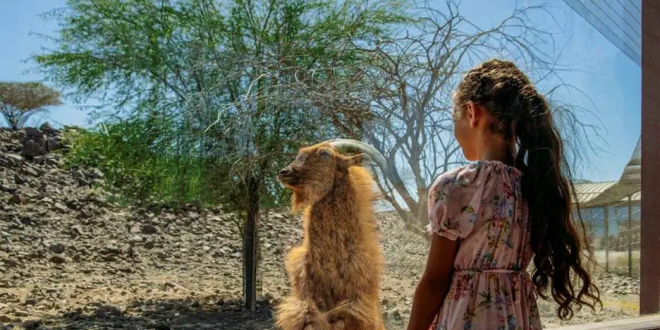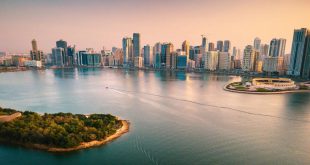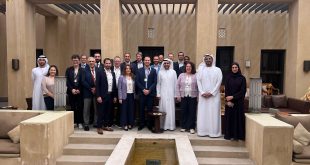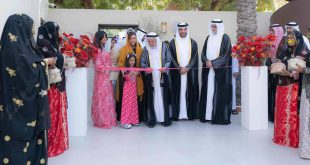Related Articles
On World Environment Day, the emirate’s strategic investments and efforts to benefit the environment, travellers, businesses and local communities, come under the spotlight
As the world takes a relook at their consumption practices against the backdrop of the World Environment Day, the global tourism industry emerges as a key player that can make a lasting and meaningful impact on the environment, on people, communities and businesses if both the creators and consumers of tourism make the right kind of decisions, choices and investments geared towards attaining sustainability.
The glaring reality of the sector’s impact can be seen in statistics revealed by The World Counts platform, which indicate that tourists left more than 885 million tons of waste and consumed more than 1.7 billion litres of fresh water in 2023, while carbon emission is anticipated to grow 25% by 2030 as a result of tourist activities.
To reverse this impact by fostering more eco conscious practices, protecting endangered species, developing sound waste management technologies and reducing overconsumption, governments, local communities, tourism destinations, and NGOs around the world are collaborating closely.
In the Arab region, Sharjah has developed a pioneering model in fostering sustainability in the tourism sector. Imbuing leisure, hospitality, tourism, art and culture with a nature-culture balance, and launching over 10 nature-based destinations in the past few years, with infrastructural design, innovation and management, that sufficiently address today’s sustainable development challenge, Sharjah has given us tangible examples of ecotourism good practices that can be replicated and adapted across the region.
Factors that support a thriving ecotourism
After successfully attracting 1.4 million tourists in 2022, Sharjah is working towards accomplishing an ambitious goal of becoming the region’s leading ecotourism provider. The emirate has successfully leveraged its wide ranging topography and natural diversity spanning coastlines, mountains, the desert, wetlands, acacia forests, palm groves and mangrove reserves, as well as its vibrant urban centre to design unforgettable travel experiences that advocate for and encourage a more mindful approach to our favourite pastime – holidaying.
HE Khalid Jassim Al Midfa, Chairman of the Sharjah Commerce and Tourism Development Authority (SCTDA), says: “Sustainability can be best achieved when we make it a mindset, not just try to achieve it through certain practices. In Sharjah, we believe in the importance of fostering such a culture and mindset in future generations, so that it continues to reflect in our approach and our conscious behaviour. Commitment to sustainability practices, particularly in tourism, leads to the development of a sense of responsibility in travellers – it creates a human – nature symbiosis and enables us to meaningfully participate in and contribute to our travel experiences, instead of just mindlessly consuming.”
Experiences that keep with the needs of our future
The results of this approach are evident in an array of sustainable tourist destinations across Sharjah. Over the past years, the Mysk Moon Retreat in Mleiha has become a leading glamping destination that meets the highest luxury standards and at the same time the needs and expectations of ecotourism enthusiasts. The Mysk Kingfisher Retreat in Kalba, which is nestled amidst the 500-hectare protected Mangrove Reserve, has become a top favourite of wildlife and nature lovers, given the diverse wildlife of water birds and sea turtles the area boasts.
Discovering nature’s best kept secrets: Coasts to mountains
With the Sharjah Safari park project, the world’s largest safari outside Africa, the emirate offers a unique opportunity to explore wildlife in 12 different expansive environments that host more than 120 wild species that make more than 50,000 animals. The Safari’s diverse vegetation encompasses 100,000 trees.
The Sharjah Desert park is one of the key destinations that has further enhanced the ecotourism appeal of the region. Visitors relish a truly unique opportunity to uncover the fascinating secrets of geological and botanical life in the desert of the Arabian peninsula, not far from Sharjah on the Al Thaid highway. The diverse ecosystem of the Wasit Nature Reserve, on the other hand, brings together coastal sand dunes, salt flats, ponds and lakes, while the Al Hefaiyah Mountain Conservation Centre and Wadi Al Helo provide vast landscapes that bring together historical architectural landmarks with wildlife ecosystems.
The developmental trajectory of the tourism sector in Sharjah testifies to the inclusive vision that the emirate has championed for decades to include sustainable and environment-friendly options in its cultural project. The emirate introduced the model of the Sharjah Sustainable City, the first sustainable residential community in the emirate which includes 1250 villas powered by renewable energy. The project is developed by the Sharjah Investment and Development Authority (Shurooq) and Diamond Developers across 7.2 million square feet in Al Rahmaniya district in Sharjah. It offers a lifestyle that aligns with the requirements of the future and aspires to achieve Net Zero Energy.






